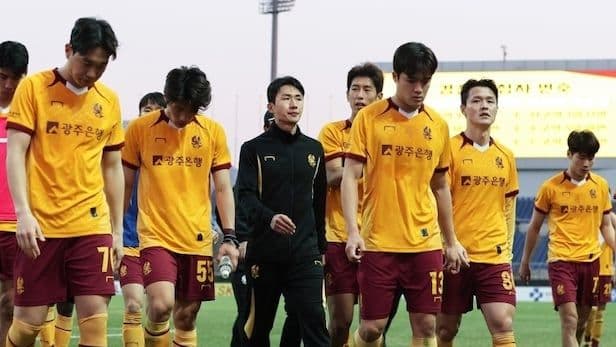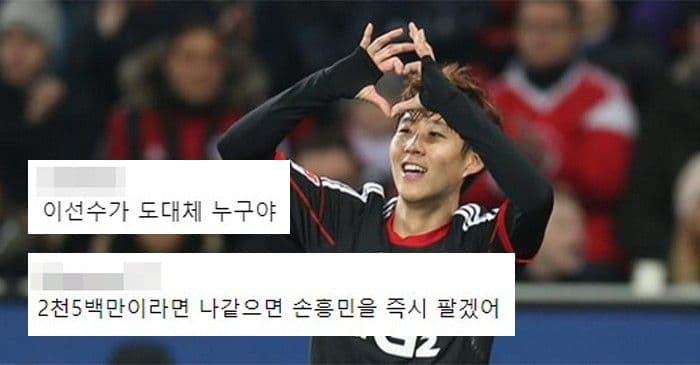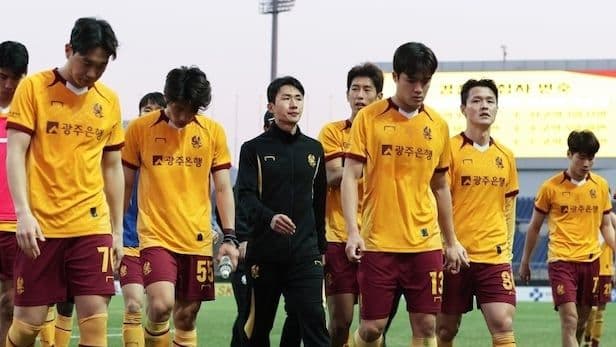Why the K League's Gwangju FC 'Ineligible Player' Controversy Finally Ended – What Every Global Fan Should Know!

What Sparked the Gwangju FC 'Ineligible Player' Controversy?
Did you know that a simple administrative mistake could shake up an entire football league? In early 2025, Gwangju FC became the center of a heated debate in the K League after it was revealed that the club had failed to pay a 'solidarity contribution' related to the transfer of Albanian player Asani. This payment, required by FIFA, supports youth clubs that helped develop the player. Due to an oversight—mainly because the responsible staff member was on leave—Gwangju never realized they’d been banned from registering new players by FIFA in December 2024. As a result, they signed and fielded over ten new players in the winter transfer window, unknowingly violating the ban. The confusion only surfaced months later, sparking a wave of protests from rival clubs.
How Did the Protests Unfold? The Relay of Official Objections

Once the news broke, teams that had played against Gwangju—starting with Pohang Steelers—filed official objections to the K League, arguing that Gwangju had used ineligible players. According to league rules, if a team fields an ineligible player, opponents can lodge a protest within 48 hours after the match, potentially resulting in a 0-3 forfeit for the offending team. By July, at least seven clubs had submitted such protests. The issue quickly became a hot topic not only in sports news but also across online communities like Naver, Daum, DC Inside, FM Korea, and PGR21, where fans debated fairness, administrative responsibility, and the impact on league standings.
The Official Verdict: FIFA and KFA Step In
After weeks of uncertainty, the Korea Football Association (KFA) and FIFA both issued statements clarifying the situation. FIFA concluded that while Gwangju had indeed violated the registration ban, the mistake was not intentional but due to administrative error. Importantly, FIFA emphasized that determining player eligibility in domestic competitions is the KFA’s responsibility. The KFA decided not to retroactively punish Gwangju, citing the need for league stability and the absence of player wrongdoing. Consequently, all match results involving Gwangju stood, and no forfeits were imposed. FIFA also respected the KFA’s decision, though it left open the possibility of future administrative sanctions for the club or association.
Community and Fan Reactions: Divided Opinions
Online communities buzzed with mixed reactions. On Naver and FM Korea, many fans sympathized with Gwangju, blaming the incident on poor administration rather than deliberate cheating. A typical comment read, "How can you blame the players for an office mistake?" On the other hand, some on DC Inside and PGR21 argued that rules are rules, and the league’s integrity was at stake. The overall sentiment was roughly split, with about 60% supporting the KFA’s pragmatic approach and 40% demanding stricter enforcement. The debate highlighted the passionate, rule-conscious nature of Korean football fandom and the expectation for transparency from clubs and officials.
Cultural Context: Why This Matters in Korean Football
For international fans, it’s important to understand the cultural backdrop. Korean football culture places a high value on fairness and collective responsibility. Administrative errors, especially those affecting competition integrity, are taken seriously and often lead to public debate. The solidarity contribution system itself is rooted in FIFA’s global push for youth development, but its implementation can be complex in leagues with less administrative capacity. This controversy exposed both the strengths and weaknesses of Korean football governance—its commitment to fairness, but also its vulnerability to bureaucratic slip-ups.
What’s Next for Gwangju FC and the K League?
With the dust settling, Gwangju FC has paid the overdue solidarity contribution, and FIFA has officially lifted the registration ban. The KFA has pledged to overhaul its administrative processes to prevent similar incidents. For the K League, this episode serves as a wake-up call to improve communication between clubs, the association, and international bodies. Fans can expect tighter controls and more transparency going forward. For Gwangju, the focus now shifts back to the pitch, with the club eager to move past the controversy and prove itself through results.
International Insight: Lessons for Global Football Fans
This saga offers a valuable lesson for football fans worldwide: even in top leagues, administrative errors can have far-reaching consequences. The Gwangju FC case shows how governance, regulations, and fan expectations intersect in modern football. For global supporters, following these off-field dramas provides a deeper appreciation for the complexities of running a professional league—and the passionate debates that make football more than just a game.
Discover More

Why Son Heung-min Chose Loyalty Over a Big Move: Inside His Decision to Stay at Tottenham
Despite warnings of losing his starting spot, Son Heung-min has rejected a lucrative MLS offer to remain at Tottenham for another season, aiming for Champions League glory. This article dives into his motivations, the fan reactions, and what his choice means for Spurs and Korean football culture.

Why Gwangju FC's 'Ineligible Player' Saga Shook K League—But Didn’t Change the Results
Gwangju FC faced a major controversy over alleged ineligible players, but after months of debate, the K League and FIFA confirmed the matches' results stand. Explore the full story, fan reactions, and what it means for Korean football.